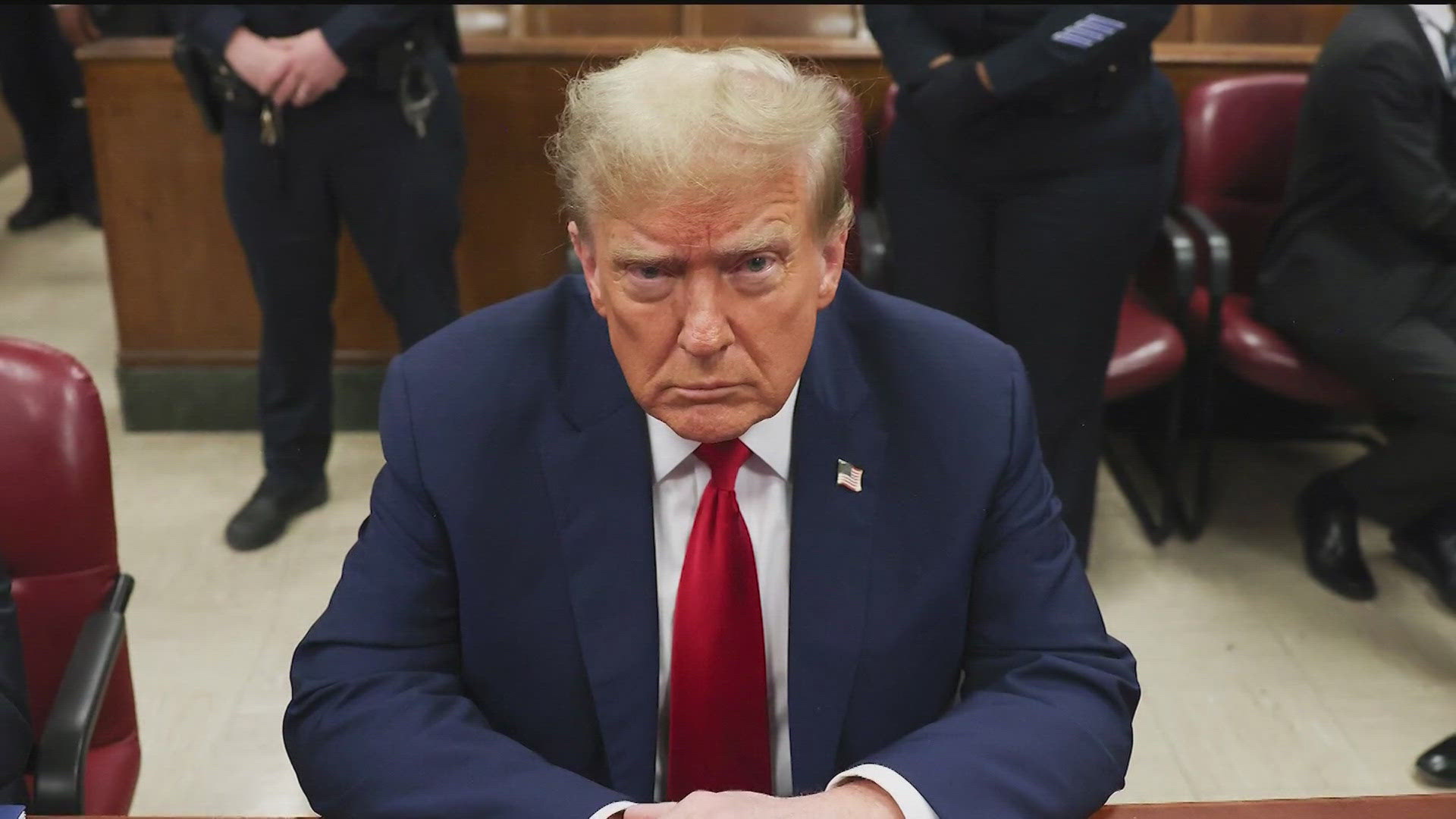FULTON COUNTY, Ga. — The Supreme Court heard oral arguments Thursday over a claim by former president Trump that the charges he faces in his federal election interference case should be dismissed on the grounds that presidents have immunity from prosecutions of their official conduct in office.
The former president has advanced a nearly identical argument in his Fulton County election interference case.
The outcome of Thursday's high court hearing could have major implications for the Georgia case, legal experts said.
In January, Mr. Trump's Georgia attorneys filed a motion in Fulton County asking Superior Court Judge Scott McAfee to dismiss his state charges, arguing that past Supreme Court precedent "shields President Trump from criminal prosecution for acts within the 'outer perimeter' of his official duties."
Judge McAfee has not ruled on the motion. Former Gwinnett County District Attorney Danny Porter suggested the judge was likely waiting for the Supreme Court to answer the federal immunity question before proceeding.
If the Supreme Court sides with the former president, the Fulton County case would be severely wounded, said former Dekalb County District Attorney Robert James.
"It could be completely destructive to the case," he said.
However, James cautioned that a decision in support of Mr. Trump's claim of presidential immunity could still leave some room for the Fulton County District Attorney's Office to try to preserve their case -- depending on how the high court crafts its ruling.
In that scenario, the local prosecutors would likely have to convince Judge McAfee that Mr. Trump's alleged criminal conduct represents activities beyond the "outer perimeter" of his official duties, said James.
Meanwhile, a ruling against Mr. Trump at the Supreme Court would spell the end of the immunity argument and potentially speed the path to trial.
"If they do not adopt this presidential immunity theory, it's a dead issue at that point," said James.
Knowing with certainty how the Court will rule is impossible. The idea of presidential immunity from criminal prosecution has never before been directly addressed by the Supreme Court.
"We're almost in unknown territory," Porter said.
Porter suggested that the Supreme Court may rule in the next few months, though James said it's impossible to tell with certainty when a decision will be handed down.

